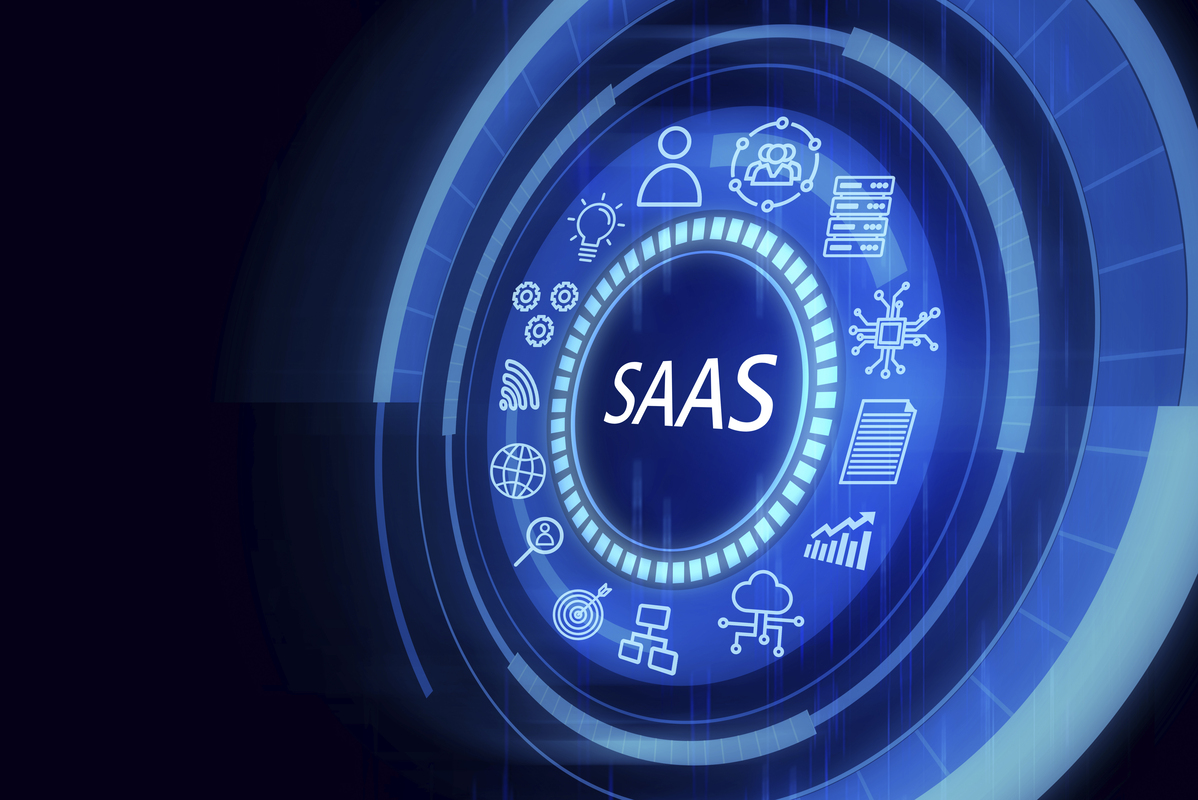Software as a service is a method of distributing web-based applications over the Internet as a service (or SaaS).
Software-as-a-Service (SaaS) tools used by companies, organizations and consumers online are known as SaaS platform web development. You can avoid complicated software and hardware maintenance by accessing software over the Internet rather than installing and maintaining it. Instead of being stored locally on the user’s device, SaaS tools, and their data are hosted on servers. The programming languages Python, SQL, PHP, and Ruby are frequently included as part of these technologies. SaaS platform web development also entails designing an incredible user experience (UX) for the front end while methodically building the back end for facilitators to edit, host, and manage. To enhance uptime and reliability and to optimize for applicability on any device that matters to your users, availability and portability are two crucial SaaS platform development best practices (desktop, mobile, etc.). In a time when keeping your customers and employees safe is essential, security and regulatory compliance are essential. Since the businesses, your product services are likely to have multiple users performing actions simultaneously, multithreading in B2B SaaS systems. Incredible CX, including Single Sign-On (SSO), fantastic onboarding and documentation, attractive and simple UX, and the opportunity for users to modify your app to suit their needs.

What Are The Characteristics Of SaaS?
The SaaS model is best understood by comparing it to a bank, which safeguards every client’s privacy while offering dependable and safe services on a large scale.
The following are the main characteristics of the SaaS model:
The Multitenant Architecture:
A multitenant architecture where every user and application utilizes the same, centralized-maintained infrastructure and codebase. The shared infrastructure and code base among SaaS vendor clients enables vendors to innovate more quickly and frees up crucial development resources that would otherwise use to maintain multiple versions of out-of-date code.
Simple Customization:
Enabling fast application modification by users without affecting shared infrastructure to fit their business processes. Due to how SaaS is developed, these customizations are unique to each business or customer and are continuously preserved during upgrades. As a result, SaaS providers can publish changes more often while minimizing customer risk and adoption costs.
Superior Access:
The ability to access data more easily from any networked device while making it easier to manage access permissions, monitor data usage and ensure that everyone views the same information simultaneously.
SaaS Harnesses the Consumer Web:
The web interface of common SaaS apps will be familiar to anyone with Amazon.com or My Yahoo! The SaaS model allows for easy customization, making the weeks or months needed to upgrade conventional company software appear hopelessly antiquated.
What Skills Do SaaS Developers Need?
A SaaS developer is an independent contractor or business that creates and supports SaaS systems.
These abilities are necessary for SaaS developers:
- Ability to Solve Issues
- Technical Proficiency
- Information Security and Management
- Compliance Knowledge
- Skills for Communication and Collaboration
Ability To Solve Issues:
Problem-solving skills are also necessary because any SaaS developer worth their salt needs to be knowledgeable about cloud computing. First, because this market differs from the typical IT arena, analytical reasoning is crucial for success and adding value. As a result, engineers working in this industry have the necessary training to tackle problems.
Technical Proficiency:
SaaS developers require a working grasp of at least one programming language. The best skill set is knowledge of Linux, Java, Python, PHP, or Ruby. Additionally, in the current economy, talents in data protection, migration, and compliance are highly sought after. Knowing how to design and construct apps, manage databases, and use high-level code are also advantages.
Information Security And Management:
Since SaaS systems are virtual and in the cloud, data security issues may recur frequently. Whatever their position, SaaS professionals need to be knowledgeable about security measures. Information management is a different challenging skill. Information management is now a full-time profession thanks to the huge SaaS transition. For someone working in a SaaS company, IoT, HRMS, data storage, auditing, integration, and analytics, as well as Hadoop and MySQL languages, can be hugely beneficial.
Compliance Knowledge:
Professionals will also need to become acquainted with and understand how to work in compliance. SaaS must follow data privacy and information security criteria when it positions the solution directly to the company or the end-user. These may be standards equally specific to the industry, fully developed with a suitable framework or other standards. In any case, it is the responsibility of the developers to be aware of these standards and to ensure that there is no risk of non-compliance while dealing with a vendor.
Skills For Communication And Collaboration:
Putting your technical expertise to the side, it’s your mindset that will propel your career forward. People who work in tight-knit SaaS teams need to be sociable, have a good outlook, practice open communication, and be able to collaborate. You may find out how a worker will react in a difficult situation by asking simple scenarios and questions. To evaluate a candidate’s social and interpersonal skills before employing them, incorporate these factors into your hiring process.

What Are The Benefits Of SaaS?
Many firms cite improved productivity and cost-effectiveness as the primary justifications for using cloud-based SaaS solutions. The benefits comprise:
Low Infrastructure And Startup Expenses:
Instead of making capital investments that must gradually depreciate on your balance sheet, you pay for what you need.
Obtainable From Any Location:
You can operate from anywhere you need to be using a desktop, laptop, tablet, mobile device, or another networked device as long as you have an internet connection.
Scalability:
As your organization expands, you may modify your needs to account for changes in the number of users, the amount of data, and the functionality needed.
Regular, Automated Updates:
Due to their size and the feedback they receive regarding their client’s needs, providers frequently provide upgrades. It frees your IT department to work on other, more important business-related projects.
Highest Level Of Security Demanded By Any Client:
All users profit from the security level established for those with the highest demand because all users share the service.
How To Hire A SaaS Web Developer?
One of startup owners’ most difficult tasks is finding engineers for their company. Software as a service (SaaS) developers are experts at writing code and producing SaaS-related goods and apps. As a result, there is a higher need for SaaS app developers for hire. These programmers take a lot of work to come by, though. Working with a committed web developer involves a thorough screening procedure and an informed checklist of the important red flags.
Advice on Choosing Web Developers for SaaS:
- Employ Dedicated Experts
- Choose Applicants with Industry Knowledge
- Examine the Culture Fit
- Actively Look for Potential Employees
- Keep your Job Description Concise.
Only 2.1% of professional developers are unemployed and actively looking for work, increasing the task’s difficulty.

How Much Does SaaS Web Development Cost?
Depending on geography and expertise, the average hourly rate for a SaaS software developer is around $60. A Software-as-a-Service startup should normally spend between $60,000 and $150,000 on developing a minimum viable product. The development cost of a SaaS application typically ranges from $20K to $200K. The initial iteration of your product is being discussed here. From the beginning of planning until the product launch, it may take 2 to 10 months. However, this depends on various variables, like the complexity of your project, its size, the tech stack, and the number of developers on your team.
Depending on your team’s location, different SaaS applications cost different amounts. Software development is a complex process, and every project is unique. Requesting a quote from a SaaS development company is the best option for obtaining an exact software development cost estimate. To receive the most precise cost estimate, you’ll want to give programmers as much data and detail as possible.
Final Thoughts:
SaaS has swiftly gained popularity due to its advantages to users and application developers. More and more individuals and organizations are learning about the advantages that SaaS product development gives to their lives thanks to the expanding SaaS market that will emerge in the upcoming years. Scalability is the most crucial component in developing your SAAS business. SaaS systems have a favorable effect on site design. Businesses will keep hiring specialized service providers that can do non-core IT tasks better to handle them. Long-term relationships with service providers will develop due to businesses using various “SaaS” services. It will foster innovation as businesses learn to recognize and meet their customers’ evolving needs.



